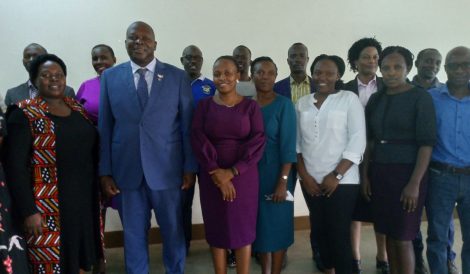CoCIS Hosts AI Workshop for Erasmus Exchange Program
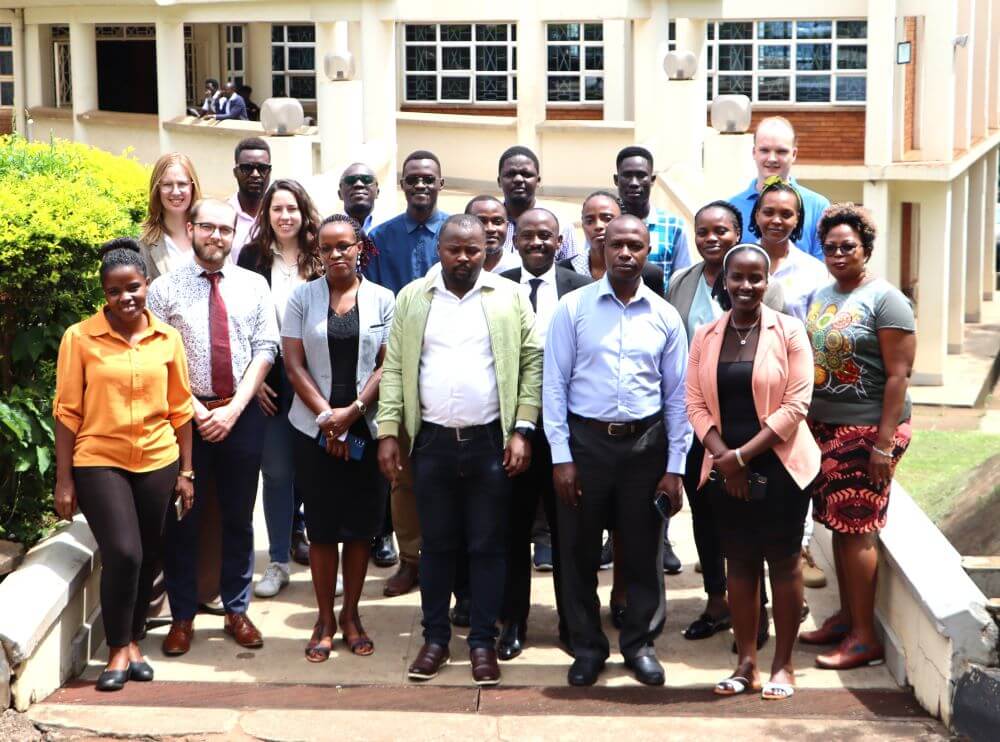
Makerere University’s College of Computing and Information Sciences (CoCIS) hosted a two-day workshop on Artificial Intelligence (AI) for students and staff participating in the Erasmus+ exchange program. The event, opened on November 11, 2024, brought together participants from Makerere University, Busitema University, and the University of Twente, aiming to foster knowledge exchange and collaboration in AI applications in agriculture and health.
Professor Tonny Oyana, Principal of CoCIS, officially opened the workshop, emphasizing the transformative role of AI in the modern world. “In the next 30 years, computing and AI will be integral in every field. Just as Word and Windows became standard, AI is also becoming essential across disciplines,” he stated, urging participants to remain innovative and rise above global competition.
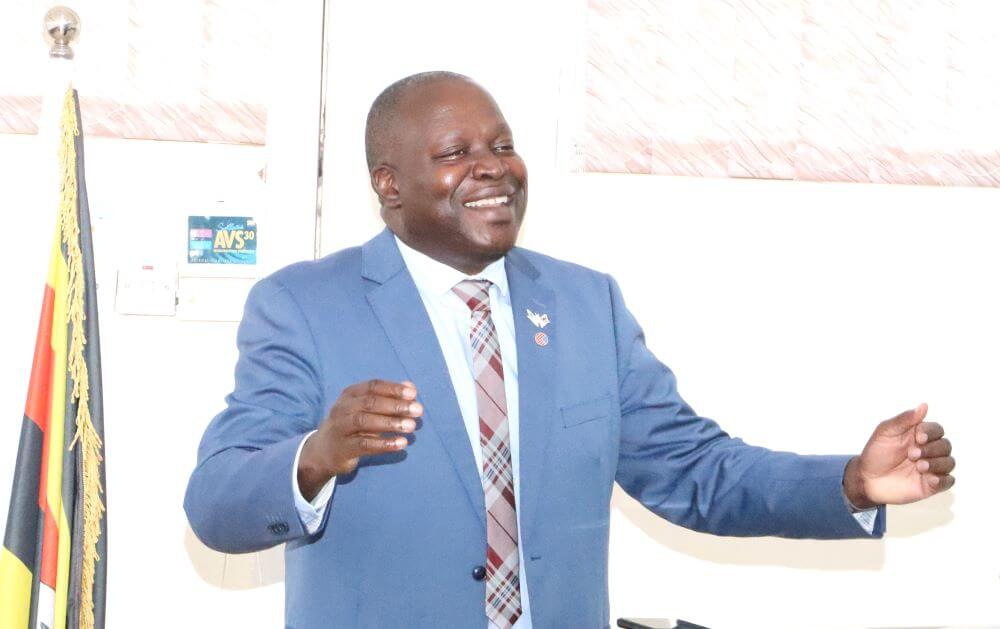
Throughout the event, Prof. Oyana highlighted the need for resilience, collaboration, and exceeding expectations in academic and professional pursuits. “If you’re required to publish three papers, aim for five,” he advised, stressing that academic success often requires going beyond minimum standards. He also encouraged participants to be proactive, using time effectively and fostering collaborative relationships that can drive impactful research and innovation.
The workshop provided a platform for interdisciplinary exchanges and networking opportunities, with participants urged to seize this opportunity for international collaboration and exploration of new ideas in AI. Prof. Oyana underscored that today’s challenges, from healthcare to environmental sustainability, require a multidisciplinary approach: “Today’s problems can’t be solved by one person. It’s through collaboration across institutions and countries that we create better solutions.”
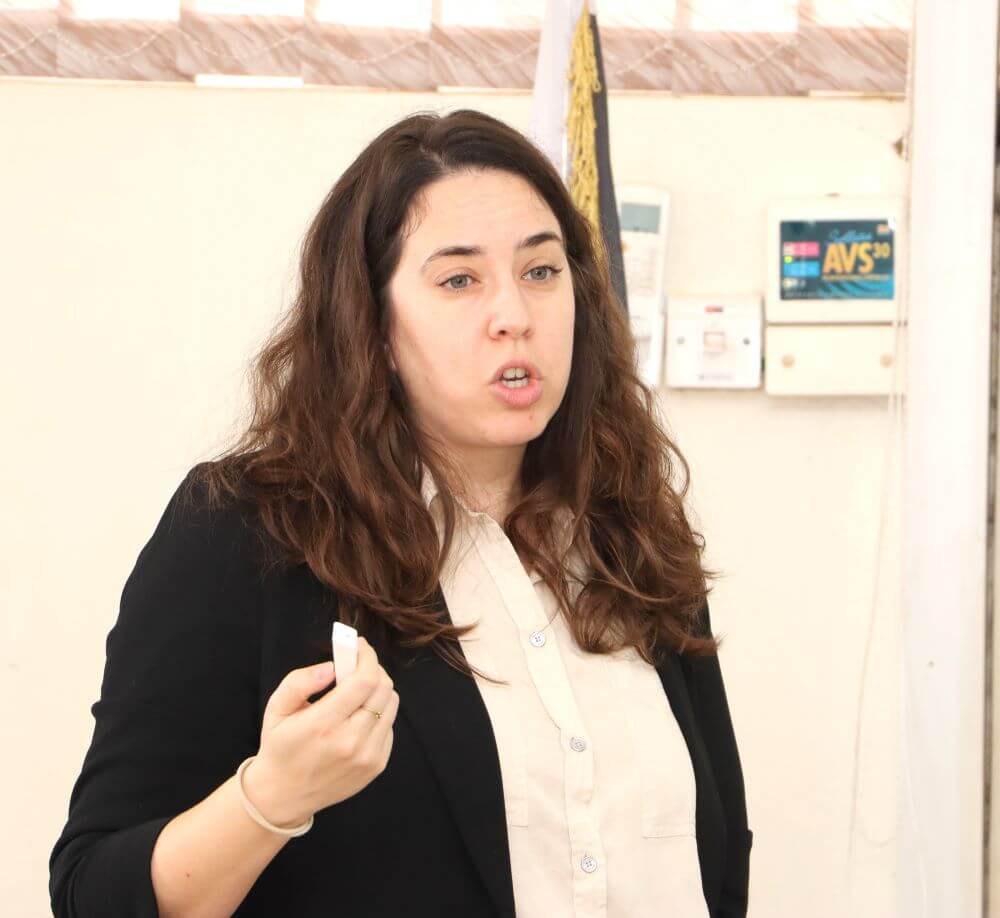
The event is part of an ongoing Erasmus+ initiative, promoting academic exchange and building capacities in AI across various fields, aligning with CoCIS’s commitment to fostering innovation and preparing students to meet the demands of a technology-driven world
Dr. Mariette Applauds Staff and Students for Embracing Erasmus+ Program.
Representing the Head of the Department of Computer Science, Dr. Mariette Atuhuriire Katarahweire commended staff and students for their enthusiasm in embracing the program. The event, held in partnership with Busitema University and the University of Twente, brought together participants to foster academic and cultural exchange across institutions.
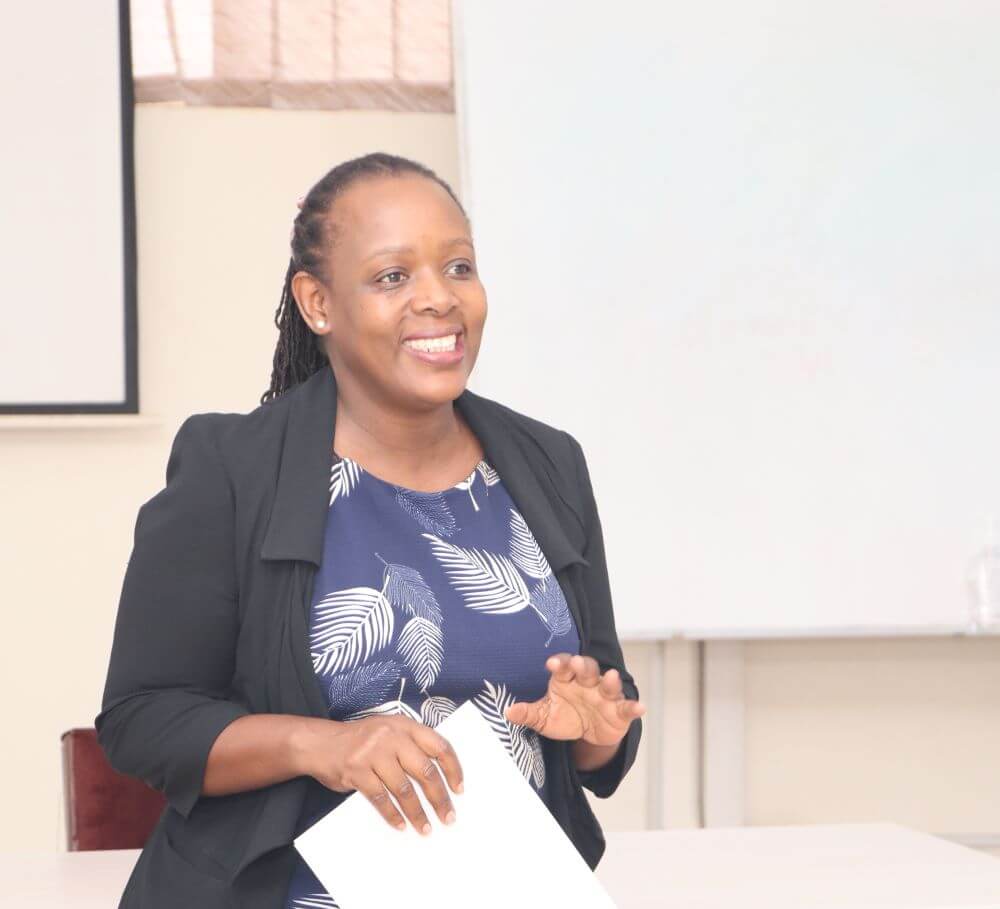
Dr. Mariette highlighted the importance of international collaboration, recounting her own experience studying in Belgium and interacting with Dutch institutions. “I once thought Erasmus was only for Europe, but seeing it extended to Africa and embraced here is heartening,” she remarked. She praised the event organizers and encouraged both students and faculty to seize such collaborative opportunities, adding, “It’s not just for students; staff should also take part, as these experiences refresh your perspective and enhance your work.”
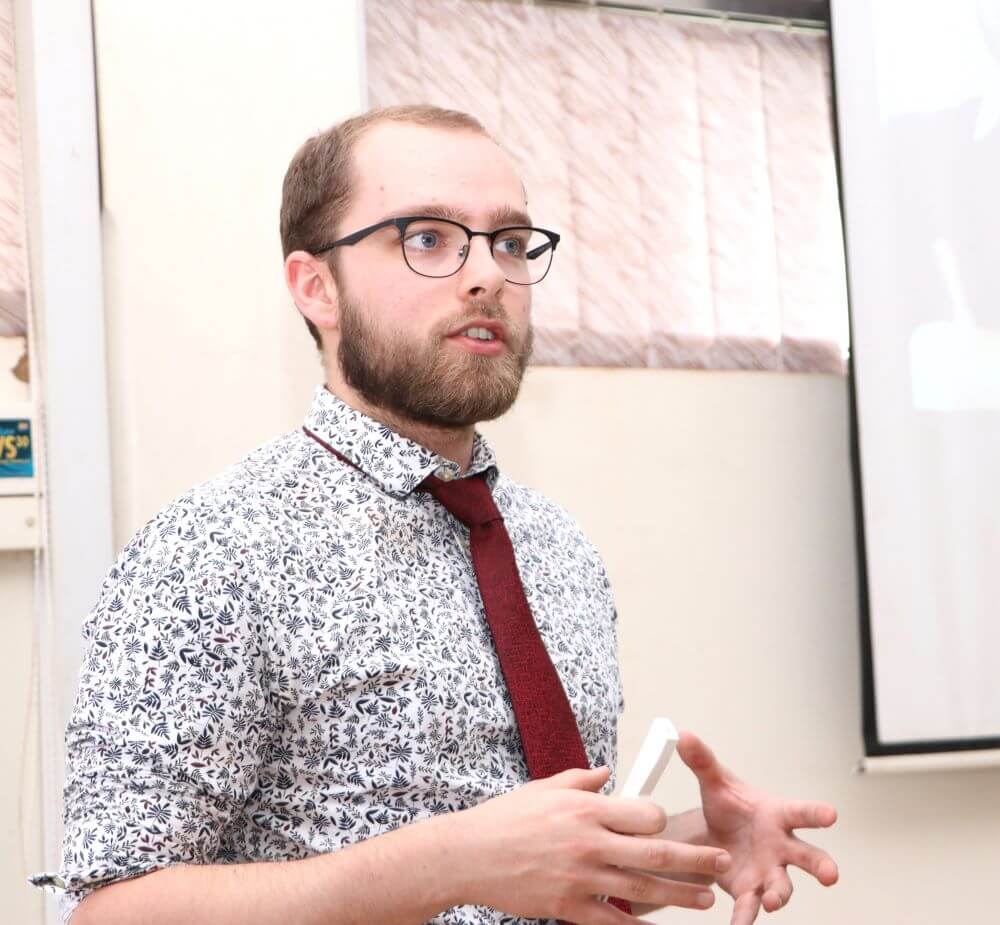
The workshop featured presentations by PhD students, providing them with valuable feedback and a platform to share ideas. “Presenting helps you think deeply about your work and clarify it for others,” Dr. Mariette explained, noting that feedback from peers and faculty can help overcome challenges in research and spark new insights.
Welcoming first-time visitors to Uganda, Dr. Mariette encouraged students to take advantage of the program’s travel opportunities, which offer exposure to different environments, cultures, and academic perspectives. “Collaborations like these allow you to make connections, share ideas, and gain insights that can transform your academic journey,” she concluded.
She expressed gratitude to the workshop organizers and applauded the participants, hoping that the event would be a fruitful learning experience for everyone involved.
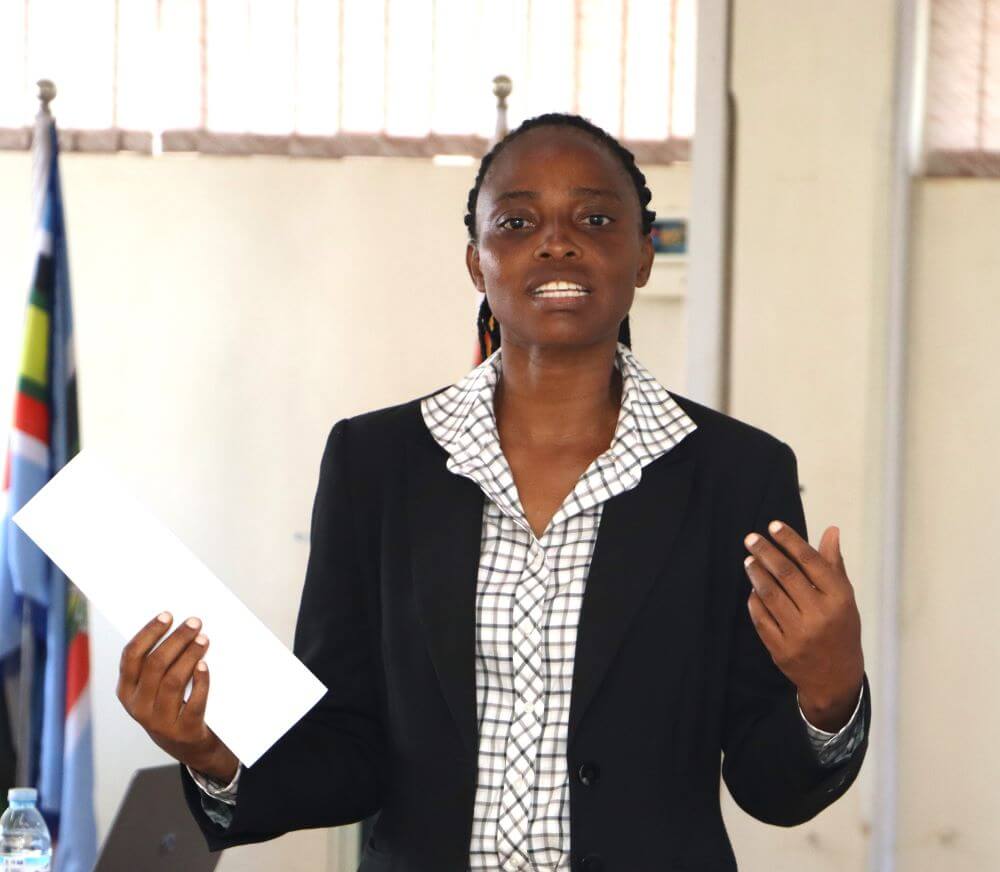
Dr. Rose Nakibuule Highlights AI Research and International Collaboration in Makerere’s Exchange Program
Dr. Rose Nakibuule, Program Coordinator at Makerere University, outlined the focus areas of an international research collaboration that involves exchanges between Makerere, the University of Twente (Netherlands), Busitema University. The program emphasizes artificial intelligence (AI) applications in agriculture and health, with a primary goal of fostering knowledge exchange and research development.
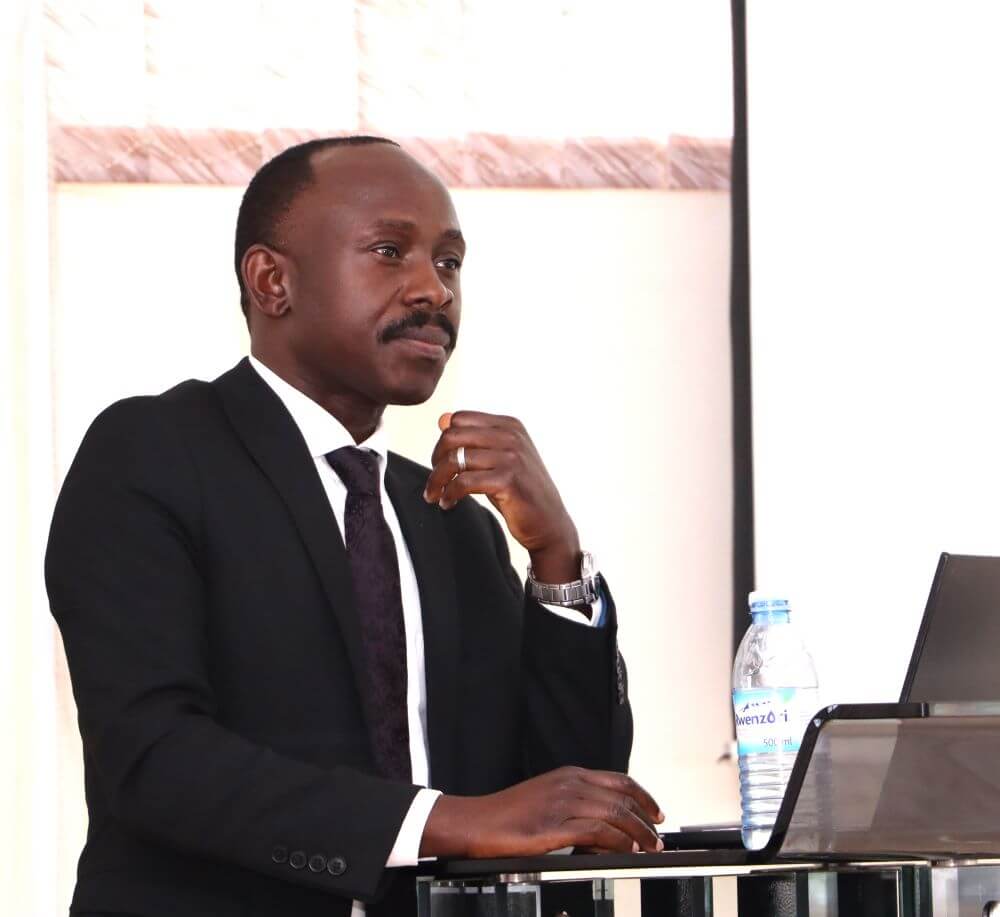
“This program is about the mobility of students and staff between institutions to enhance research and collaboration,” Dr. Nakibuule explained. “Last year, three Makerere PhD students went to Twente for six months, and this year two of us, myself and Stephen Odongo, will participate.” She noted that students from Busitema University have also benefited from the exchange.
Dr. Nakibuule highlighted several AI-focused projects, including disease monitoring systems and AI-powered translation tools aimed at helping farmers who speak diverse languages. “We’re developing a platform that can translate information into local languages, so farmers across regions can access vital data,” she said. In agriculture, the program’s projects also include AI models for identifying crop varieties, allowing farmers to use smartphones to scan seeds or pods for variety detection.

The program’s collaborative nature also addresses resource limitations faced by Makerere. “Twente has the resources we need to build these AI systems, while we bring local expertise and the specific needs of our communities. Together, we’re creating tools that can be applied directly in the field,” Dr. Nakibuule said. This hands-on, cross-border collaboration aims to ensure that research goes beyond the lab, benefiting communities directly and supporting data-driven agricultural practices.
Report by
Jane Anyango
Communication Officer CoCIS

